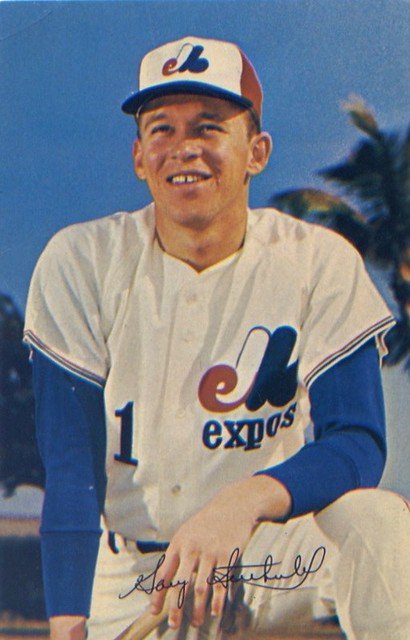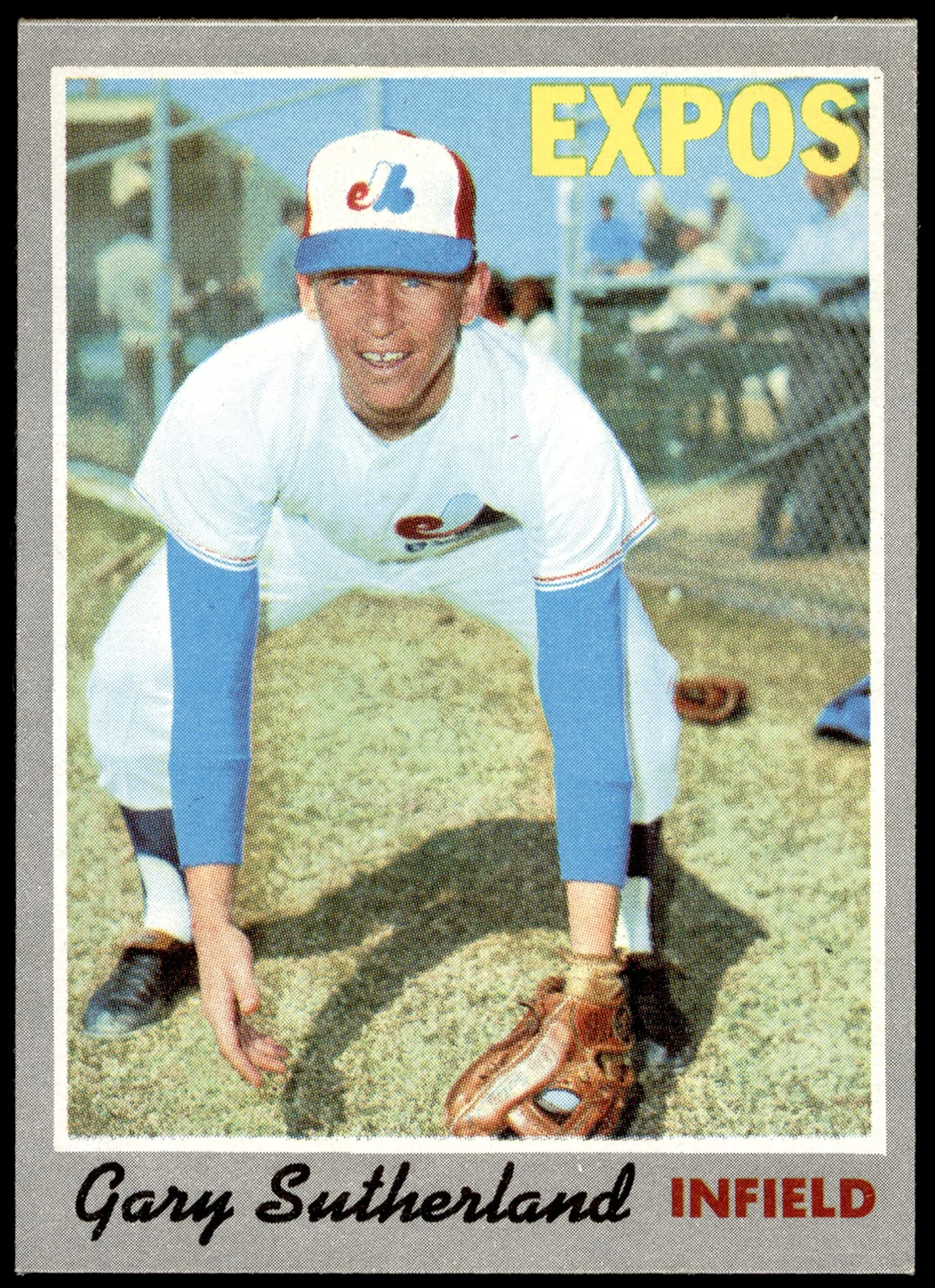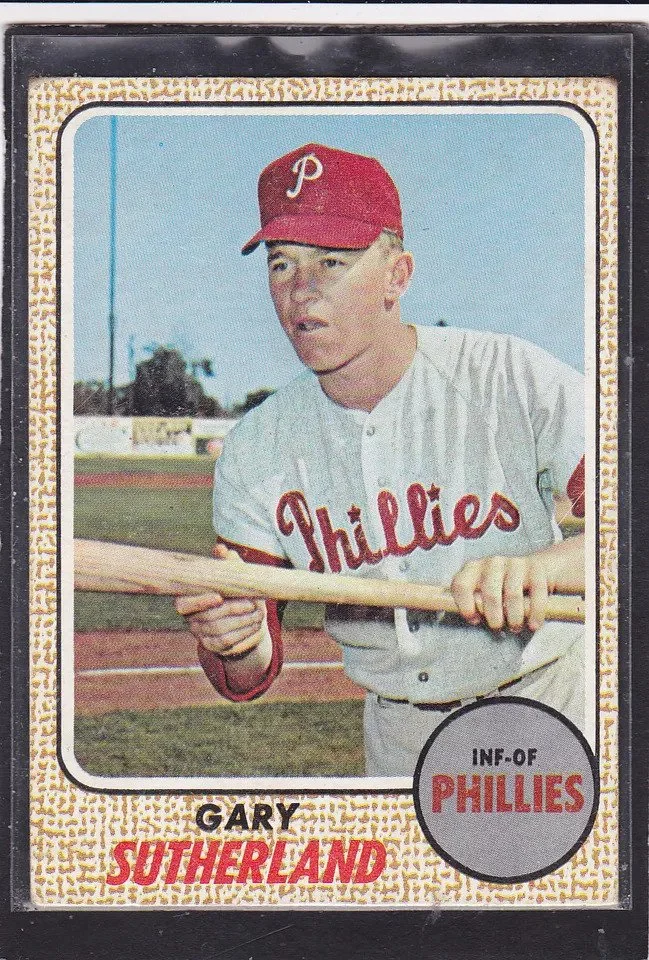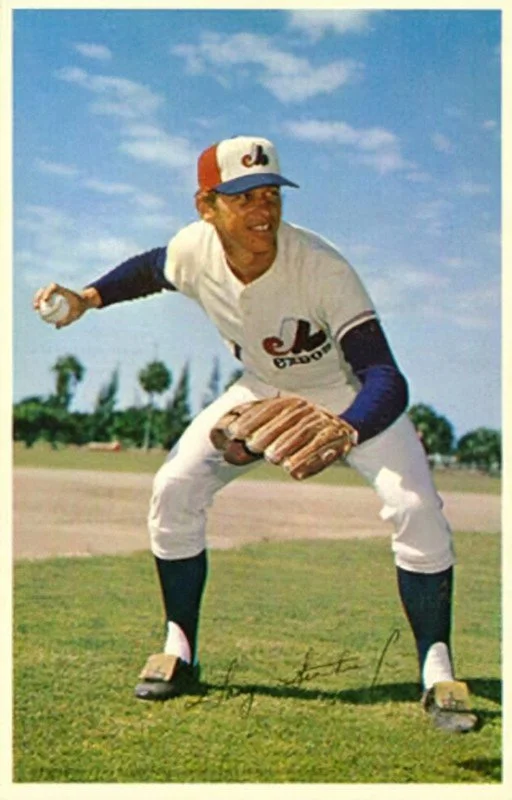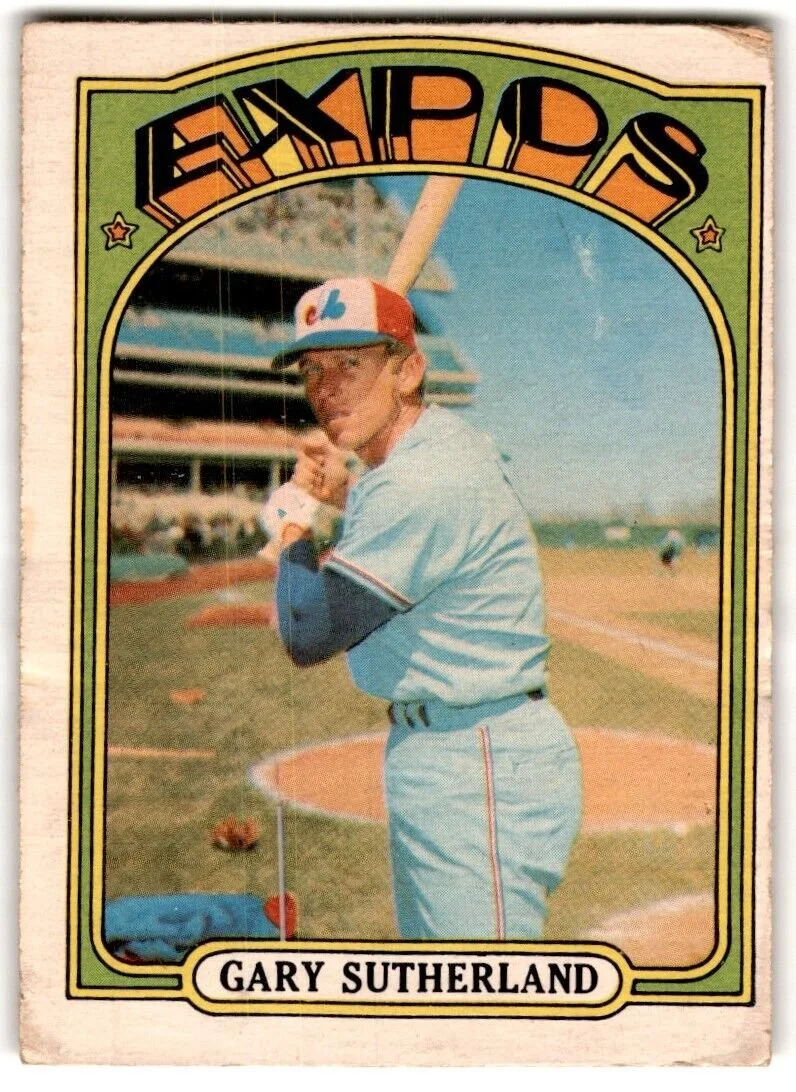Glew: Sutherland scored Expos' first run, scouted Gwynn, Pedro, Piazza
Former Montreal Expos Gary Sutherland died on December 16.
January 1, 2025
By Kevin Glew
Cooperstowners in Canada
Gary Sutherland, who scored the first regular season run in Montreal Expos’ history, died on December 16 at the age of 80.
Canadian Baseball Network writer Danny Gallagher was the first to report Sutherland’s passing.
Gallagher shared that Sutherland died of bile duct cancer in Monrovia, Calif.
“My mom, sisters, and I were able to spend valuable time with my father in the past 2 1/2 months since his diagnosis,” wrote Sutherland’s daughter Lori Ketkar on the Douglass and Zuke Funeral Home page. “We had a beautiful day with him the day before he passed. We were lucky enough to tell him how much we all love him and he was able to share with us how much he loved each of us.
“He is in a better place now, free from the pain and suffering from the aggressive cancer. He was a man who valued family (first and foremost), honor, respect, honesty, and integrity. I will miss him so much.”
Sutherland landed with the Expos after they selected him from the Philadelphia Phillies in the MLB Expansion Draft on November 14, 1968. Expos skipper Gene Mauch had managed Sutherland on the Phillies and thought highly of him. Mauch considered Sutherland “by far the best utility man in the National League.”
Batting second and starting at second base for the Expos in their first regular season game on April 8, 1969, Sutherland reached on an error by Mets second baseman Ken Boswell in the first inning and came around to score the Expos’ first run on a double by Bob Bailey. The Expos eventually won the game 11-10.
In total, Sutherland played 368 games in three seasons with the Expos. It was his longest tenure with any of the seven big league clubs he suited up for during his 13-season career.
Growing up in Glendale
Born on September 27, 1944 in Glendale, Calif., Sutherland grew up in an athletic family. His father, Ralph, was a former minor league pitcher in the St. Louis Cardinals’ organization and his mother, Mildred, was a semi-pro softball catcher. His siblings were also excellent athletes. His older brother, Darrell, pitched four seasons in the big leagues and his younger brother, Gene, was a star basketball player at UCLA.
Sutherland lettered in baseball and basketball at Glendale High School but he also excelled in golf and bowling. He told the Montreal Gazette that he never felt pressure from his father to play pro baseball.
“No, he never pushed us at all,” said Sutherland of his father. “He coached our Little League team and brought us up under a baseball atmosphere, but he let us make up our own minds.”
USC scholarship
Sutherland earned a baseball and basketball scholarship to the University of Southern California after high school. He was a standout infielder for USC for two seasons and each summer during those college years, he played semi-pro ball in Western Canada.
“The college used to send me to a semi-pro summer league in Western Canada . . . I played in Edmonton, Calgary, Lethbridge and Medicine Hat in 1963,” Sutherland told the Montreal Gazette in March 1969.
In 1964, Sutherland joined the U.S. national team and played two games against Japan at the Tokyo Olympics where baseball was a demonstration sport.
Signed by Phillies
When he returned from Tokyo, he was signed as an amateur free agent by the Phillies. With the Phillies, he’d spend two seasons in their organization as a middle infielder prior to receiving his first big league call-up in September 1966. He got into three major league games that month before joining the Phils for a full season in 1967, hitting .247 in 103 games. He batted a career-best .275 in 67 contests for the Phillies in 1968 before he was selected by the Expos in the expansion draft.
Drafted by Expos
Mauch was excited to land Sutherland. He knew what he was getting in the 6-foot, 185-pound California native: a scrappy, versatile, hardworking, team-first contact hitter.
Sutherland, who would wear No. 1 for the Expos, was red-hot during his first spring with the club. On March 18, he was hitting .545 before spraining his ankle but he returned quickly to claim the starting second base job.
On top of recording the first run in Expos’ regular season history, Sutherland also registered the first out in the club’s first home game when he caught a line drive off the bat of St. Louis Cardinals legend Lou Brock on April 14, 1969 at Jarry Park.
Unfortunately, Sutherland pulled a muscle in his left leg early that season and struggled to play through it. His batting average had dipped to .156 heading into a series against the Pittsburgh Pirates on April 25, which inspired him to participate in an extra batting practice session with a few of his teammates at Forbes Field. According to a report in the Montreal Gazette, the Expos could only muster up four baseballs for the batting practice session.
“I hit first so we’d be sure not to lose any of the balls,” joked Sutherland, who had only one MLB home run at that point.
That session proved beneficial for Sutherland. The following day, he had four hits for the Expos in their 4-3 loss to the Pirates.
It was his first of three, four-hit games with the Expos that season. His second came on July 5 against his former team, the Phillies, at Connie Mack Stadium. It was a relief for him because he had been scuffling offensively and defensively.
“For one stretch there, I couldn’t seem to do anything right,” Sutherland told the Montreal Gazette after the game. “I had four hits in one game only twice before in the majors. Once was this year against Bob Veale in Pittsburgh. The other time was with the Phillies.”
Sutherland enjoyed his third four-hit game with the Expos on September 15 against the Chicago Cubs at Jarry Park.
That season, Sutherland also earned a reputation as being one of the best at turning the double play at second base. He and shortstop Bobby Wine combined to turn a National League-leading 110 double plays.
In all, Sutherland batted .239 with three home runs and 35 RBIs in 141 games in the Expos’ inaugural campaign.
Platooned in 1970
He returned to the Expos in 1970 but struggled with the bat and ended up sharing playing time at second base with the left-handed hitting Marv Staehle. Sutherland batted just .206 with three home runs in 116 games, but he never stopped working to get out of his slump.
“The only place I have to look is ahead,” Sutherland told the Montreal Gazette about his offensive woes in mid-September, “because I can’t afford to look back and feel sorry for myself.”
Expos acquire Hunt
On December 30, 1970, the Expos acquired Ron Hunt from the San Francisco Giants to be their starting second baseman. This shifted Sutherland into a utility role. Undeterred, he arrived at spring training determined to improve and was frequently the first player in camp each day.
“I’m not working any harder than I have other years,” Sutherland told the Montreal Gazette for a story published on March 4, 1971. “I work as hard as I can all the time . . . Naturally, I’m aware of Hunt’s presence. Naturally I’m concerned. But I’m not worried. The fellow who is playing best will be in there — I imagine.”
Sutherland even played some outfield that spring as part of embracing his new utility role. During the 1971 regular season, his batting average rose to .257 and he had four home runs and 26 RBIs in 111 games.
Sent to minors in spring 1972
But that improvement didn’t seem to matter much the following spring when the Expos acquired Hector Torres and he replaced Sutherland as the club’s utility player. Sutherland was sent to the Triple-A Peninsula Whips where he hit .285 in 53 contests before the Expos traded him to the Houston Astros on June 13.
Joins Astros
Over the next two seasons, he was shuttled between the minors and the Astros’ big-league club.
On December 3, 1973, he was dealt to the Detroit Tigers where he became the club’s starting second baseman and leadoff hitter. In 1974, Sutherland had 619 at bats (third-most in the American League) and set a career high with 157 hits. He followed that with 130 hits, including a career-best six home runs for the Tigers in 1975.
Traded to Brewers
On June 10, 1976, the Tigers traded him to the Milwaukee Brewers. He played half a season with the Brew Crew prior to completing his playing career with the San Diego Padres (1977) and the Cardinals (1978).
In all, he suited up for 1,039 major league games and batted .243.
Post-playing career
Following his playing career, he developed into a highly respected scout, first with the Padres where he scouted a promising left-handed hitting prospect named Tony Gwynn.
Then, after eight seasons as a scout for Cleveland (1982 to 1989), Sutherland was hired as a special assignment scout by the Los Angeles Dodgers where he provided the club with encouraging reports on future Hall of Famers Pedro Martinez and Mike Piazza.
After his tenure with the Dodgers, Sutherland served as an assistant to Angels general manager, and his former Expos teammate, Bill Stoneman, for 13 seasons. Sutherland earned a World Series ring in 2002.
“Gary was a first-class guy and a good scout. I enjoyed working with him in Anaheim,” wrote longtime scout Tom Burns on X on December 24.
Sutherland is survived by his wife, Karen, his three daughters, Jill, Lori, and Teri, three granddaughters and a great-granddaughter.
You can read his official obituary and leave condolences for the family here.

